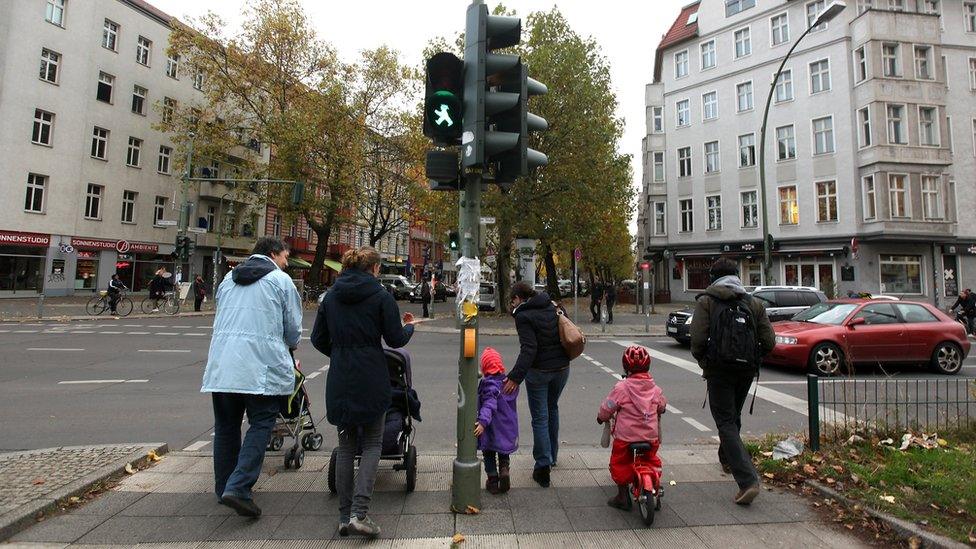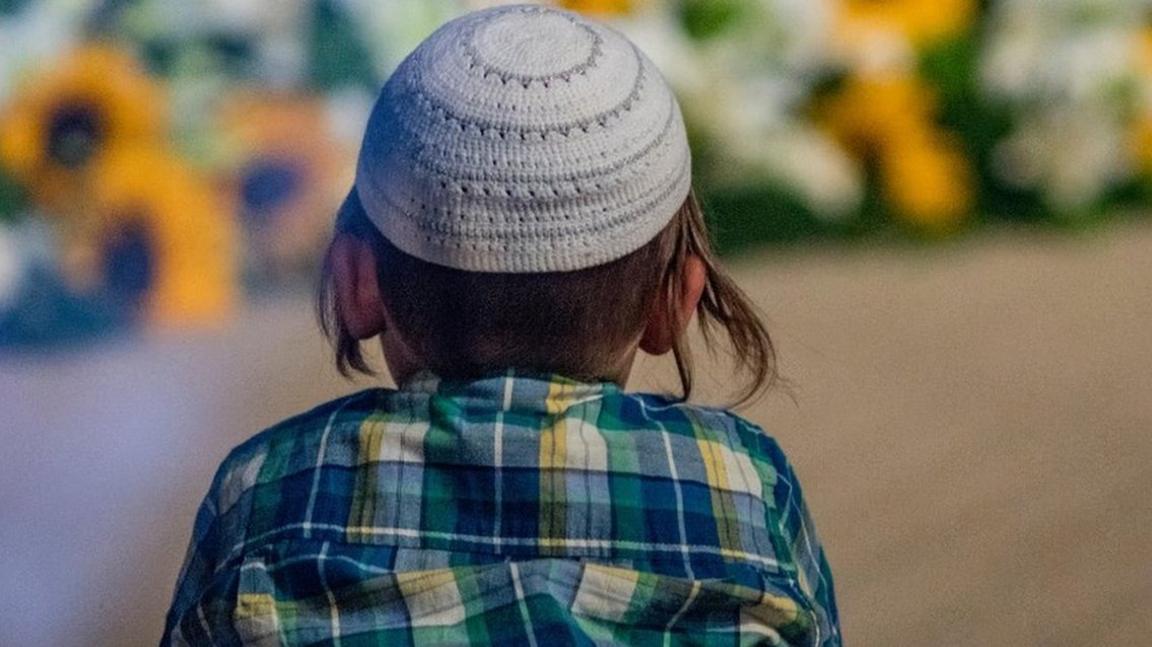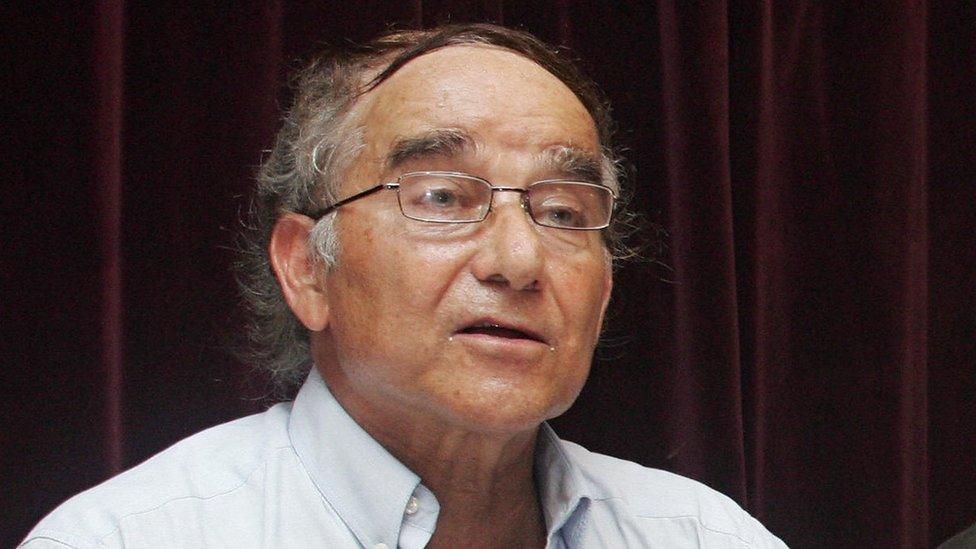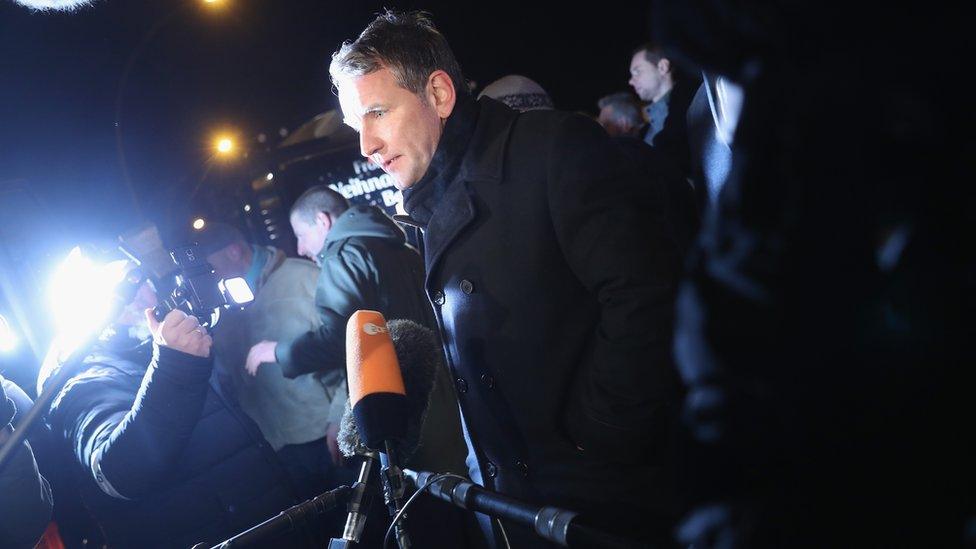German police investigate anti-Semitic attack in Berlin
- Published
Footage shows the attack in the Prenzlauer Berg area of Berlin
German police are investigating an assault on two young men in Berlin, in which the attacker was filmed shouting anti-Semitic abuse.
The men say they were harassed in the Prenzlauer Berg area on Monday while wearing Jewish skullcaps (kippahs).
A video of the incident, which was later shared on Facebook, shows the attacker hitting the men with his belt.
He is heard shouting "Yahudi", an Arabic word for Jew, before being dragged away by another man.
One of the victims, a 21-year-old Israeli called Adam, then reportedly followed the attacker but gave up after a glass bottle was thrown at him.
"I'm surprised something like this happened to me. I'm still in shock," he told Israel's Kan television channel.
"It happened right here, next to my home, when I was on my way to the train station with my friend."
He said a group of three men started insulting them and became angry when they were asked to stop.
"One of them ran at me," he said. "I immediately felt it was important to film because I didn't think we could catch him before police arrived."
The video of the attack was shared on Facebook by the Jewish Forum for Democracy and against Anti-Semitism (JFDA), external, which said the attack was unbearable to see.
"I used to always advise my Jewish friends and acquaintances not to wear a kippah so as not to show their Jewish identity. I changed my opinion," a spokesman said.
"We must take up this fight and be visible again in public."
In a twist to the story, the Israeli victim later told German media that he had grown up in an Arab family in Israel and was not himself Jewish. He had been given the kippah a few days before by a friend from Israel who had told him it was dangerous to wear one in Berlin and he wanted to see if that was true.
Germany's Jewish population has grown rapidly since the fall of the Berlin Wall.
Before 1989, the population was below 30,000 but an influx of Jews, mainly from the former Soviet Union, has raised the number to more than 200,000.

The apparent anti-Semitic attack happened in Berlin's Prenzlauer Berg district
- Published26 March 2018

- Published27 March 2018

- Published31 January 2018

- Published11 September 2017

- Published18 January 2017
